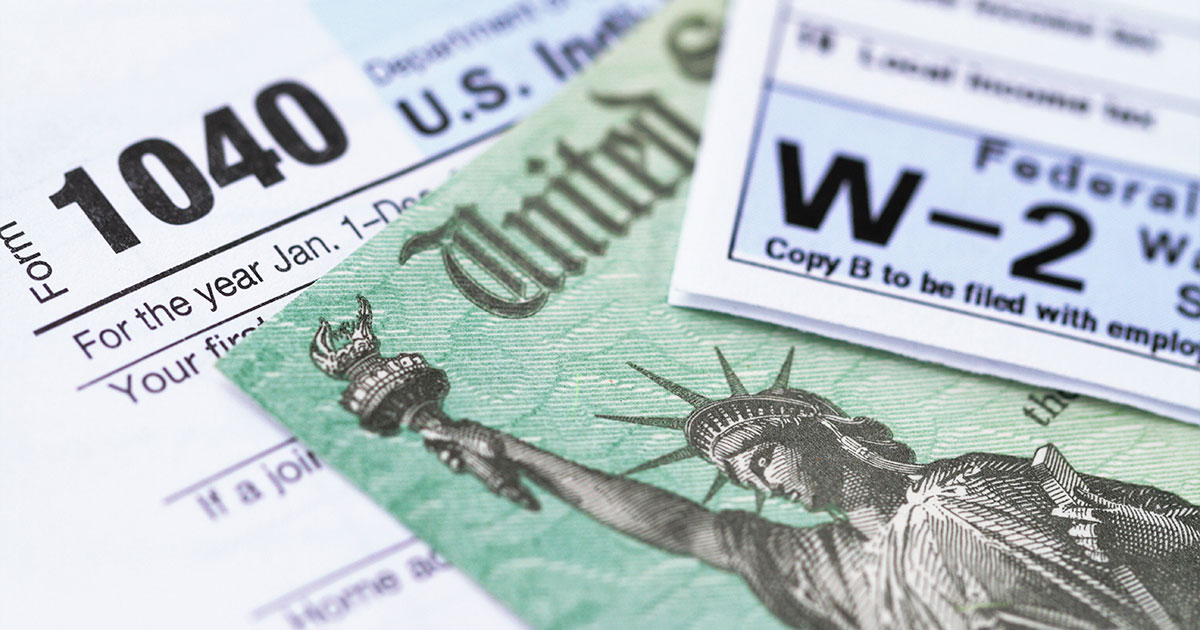
March 2, 2022 – Embarking on a tax research project can feel like setting sail on a vast ocean. Which course should you set and how long will it take?
In this article, get a quick overview of the primary sources for tax law in general, plus books that can help guide you on your way.
Note: For the sake of brevity, this article focuses on federal and Wisconsin sources of tax law. Ask a law librarian for help finding international or out-of-state laws or books.
Primary Sources
A tax law researcher’s goal is a familiar one: find and apply authorities to your situation. Statutes and regulations underpin tax law. Courts and administrative agencies interpret our tax laws. These sources can be found in a variety of places, both freely available online and in commercial publications or databases.
The lists below include major sources for tax law. Links for each source and further explanation of each are available on the Wisconsin State Law Library’s
Tax Law research page.
United States Sources
- United States Constitution
- United States Code – Title 26, Internal Revenue Code
- Code of Federal Regulations – Title 26, Federal tax regulations
- Internal Revenue Service administrative guidance, including revenue rulings and revenue procedures
- Tax treaties
- United States Tax Court
- United States Claims Court
- Federal District Courts
- United States Court of Appeals
- United States Supreme Court
Federal courts interpret our nation's tax laws. Tax cases are heard in the U.S. Tax Court, U.S. Claims Court, federal district courts, the U.S. Court of Appeals, and the U.S. Supreme Court. While district courts and the U.S. Claims Court hear a variety of cases that may include tax cases, the U.S Tax Court is a specialist, producing both memorandum and regular decisions.
The U.S. Department of the Treasury administers the U.S. tax laws.
Internal Revenue Service rulings and memoranda may be used to provide authority or insight into the Treasury Department's view on some tax matters.
Wisconsin Sources
- Wisconsin Constitution
- Wis. Stat. chapters 70-79, Taxation
- Wisconsin Administrative Code TAX, Department of Revenue
- Wisconsin Administrative Code TA, Tax Appeals Commission
- Wisconsin Department of Revenue private letter rulings, and other guidance printed in the Wisconsin Tax Bulletin
- Wisconsin Tax Appeals Commission
- Wisconsin Circuit Courts
- Wisconsin Court of Appeals
- Wisconsin Supreme Court
Any disputes between a taxpayer and the Wisconsin Department of Revenue (DOR) are appealed to the Wisconsin Tax Appeals Commission (formerly Board of Tax Appeals).
These decisions can be found on the Wisconsin Tax Appeals Commission website and in tax reporters and online databases. They can also be browsed or searched for free from the State Bar of Wisconsin
Tax Appeals Commission collection. Tax cases may be appealed to circuit courts.
DOR publishes an annual
Wisconsin Topical and Court Case Index on their website. This hybrid super source references by topic Wisconsin statutes, administrative rules, tax releases, private letter rulings, Wisconsin tax publications, sales and use tax reports, Wisconsin tax bulletin articles, attorney general opinions, and court decisions of the Wisconsin Tax Appeals Commission and the Wisconsin courts.
State Bar of Wisconsin PINNACLE Books
The State Bar of Wisconsin PINNACLE® offers several books that discuss tax law within a specific area of practice. Depending on your topic, here are a few to check out:
Databases and Books
Tax practice is interdisciplinary, intersecting with accounting, politics and government, estate planning, employment, family, and other areas of law. Searching several sources of primary law in a broad sonar sweep is one strategy, but sometimes starting with a book or database may save you some time.
 Carol Hassler is a law librarian at the
Wisconsin State Law Library. She is a member of the Law Librarians Association of Wisconsin (LLAW). LLAW's Public Relations Committee coordinates regular contributions by its members to
InsideTrack.
Carol Hassler is a law librarian at the
Wisconsin State Law Library. She is a member of the Law Librarians Association of Wisconsin (LLAW). LLAW's Public Relations Committee coordinates regular contributions by its members to
InsideTrack.
When there’s no clear provision in the law that addresses your question, turn to secondary sources for interpretation. Sources can include online or print tax services, journals, newsletters, textbooks, or treatises. This list skims the surface, so ask a librarian for help finding more resources.
CCH AnswerConnect is a database free to anyone with a Wisconsin State Law Library card. It provides tools to keep up with tax news as well as more in-depth research options. Use specific citations to find additional analysis or case law on a narrow topic, or browse by broader topic to read analysis and follow links to authorities in Wisconsin and federal law.
Sign in and check it out today.
State Tax Handbook: Helpful for those working in multiple state jurisdictions, CCH’s handbook includes overviews of each state’s tax laws, plus 50 state charts on tax topics.
US Master Tax Guide: A quick reference guide from CCH, this book provides analysis of recent tax law changes, as well as topical and well-cited coverage of federal tax issues.
Quick Topics
Single volumes are perfect for the one-stop researcher.
Check your law library for helpful books for your next tax adventure. Books available for checkout at the Wisconsin State Law Library include:
BNA’s Tax Management Portfolios: This broad series includes focused, single volume portfolios on a number of topics. Frequently updated, these portfolios are excellent sources for hard-to-find analysis on federal, international, and estate tax. These portfolios can also be searched in the Bloomberg Law database.
Tax considerations are frequently addressed in chapters of focused treatises. Find tax analysis in State Bar of Wisconsin books like
Eckhardt’s Workbook for Wisconsin Estate Planners or
A Guide for Wisconsin Nonprofit Organizations.
Tax Reporters and Sets
Reporters are a staple for tax researchers, compiling case law, administrative guidance, and analysis of statutes and regulations in one convenient place. Some resources are organized by the tax code, while others focus on explaining tax law by topic. These are just a few:
Merten’s Law of Federal Income Taxation: Arranged by topic, this several volume set provides frequently updated insight into tax law, with an emphasis on essential and new case law.
Standard Federal Tax Reporter: Provides analysis of Internal Revenue Code sections, as well as related cases, regulations, and other relevant annotations. This is a helpful source for researching new regulations and administrative rulings.
Free CLE, Plus Where to Get Help
Sign up for this month’s free CLE webinar from the Wisconsin State Law Library,
Tax Research Sources and Strategies (noon-1 p.m. on March 10), to learn more about these resources, and understand how to leverage library databases in your research.
A librarian can direct you to trusted legal practice materials. Reach out and ask your local law librarian for help with your research, or at these libraries:
